
Oats take part of every “healthy foods” aisle in the supermarket (and local stores). They are not only sold in their natural form (e.g., instant, rolled oats, or oat groats) but also integrated in cookies, crackers, granola, cereals, and other grain-based foods.
The truth is, oats are indeed very nutritious (and delicious) food that can provide you with various health benefits!
In this article, we give you 5 reasons to include oats in your diet!
Let’s get started!
Why are oats healthy?
Oats are rich in carbohydrates (100g oats have 66g carbs), but they also contain large amounts of dietary fiber (10.6g per 100g oats). [1] This way, these grains are considered to be “slow” carbs, as they are slowly digested, have a low glycemic index, don’t cause sharp spikes in blood sugar levels, and give you energy for a couple of hours.
Besides, oats are low in fat and are packed with vitamins (folate, thiamin B1, pantothenic acid B5, riboflavin B2, and other B complex vitamins) and minerals (non-heme iron, calcium, magnesium, phosphorus, potassium, zinc, copper.)
What is more, oats are naturally gluten-free grains, which means that they are suitable for consumption by those with Celiac disease and gluten-sensitivity. [2]
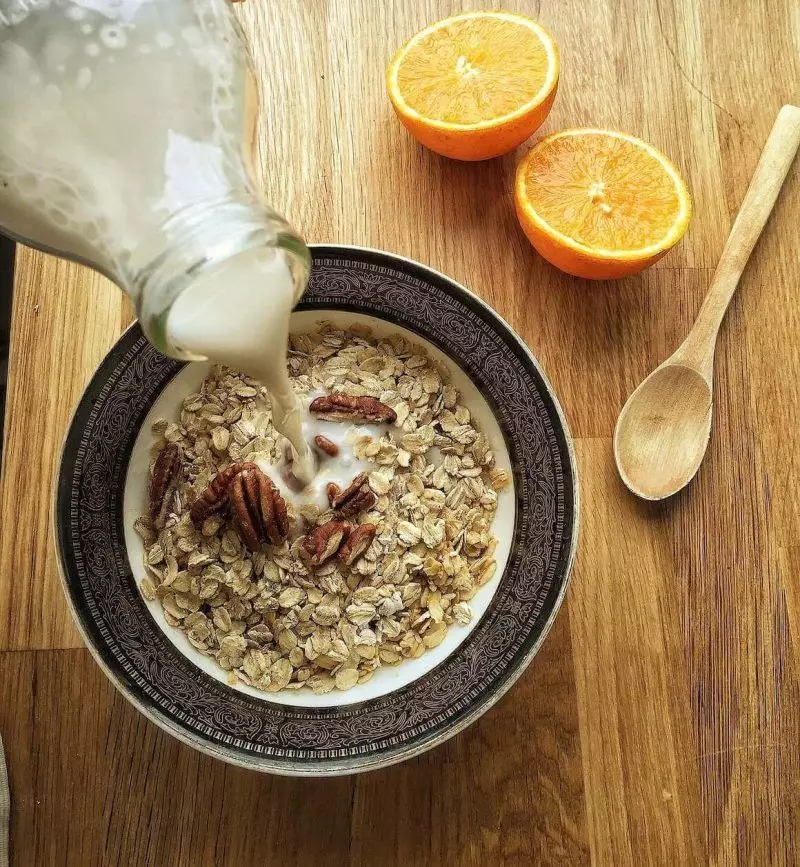
What are the benefits of eating oats daily?
Being that nutritious (and tasty), oats are associated with various health benefits, including weight management, balanced cholesterol profile, improved gut health, immune system support, and reduced risk of (certain) chronic disease development, it can be beneficial to incorporate oats in the diet.
The health benefits of oats provided below are based on information from a 2017 review paper on the “Importance of Oats in Human Diet”, published in the Bulletin of Environment, Pharmacology and Life Sciences. [3]
Help with weight management
Oats are rich in soluble fiber (more precisely beta-glucans). When ingested, these fibers are digested slowly and give you a sensation of satisfaction (and fullness.) This way, oats keep you feeling full for a longer time. Since they increase satiety, hopefully this will encourage the consumption of fewer calories during the day and eventually promote weight loss/management.
Balance cholesterol profile
Beta-glucans (soluble fiber) in oats can also positively impact cholesterol levels and heart disease risk.
Evidence suggests that soluble fiber may reduce the total and LDL cholesterol (also known as bad cholesterol.) This way, regular consumption of oats can reduce the risk of atherosclerotic buildup and heart disease development.
So that’s why oats can be called “heart-healthy” food!
Gut health support
Oats can support healthy gut flora, increase the abundance of healthy bacteria in the gastrointestinal (GI) tract, and improve the symptoms of gut conditions (like constipation, bloating) because of their prebiotic content.
Prebiotics are non-digestible compounds, meaning they are not broken down in the body when consumed. That being said, these compounds are essential for maintaining healthy microorganism and bacterial balance in your gut. [4] Healthy bacteria in the gut uses prebiotics as fuel. Therefore, by consuming more high fiber foods you are promoting the activity and proliferation of healthy bacteria in your gut!
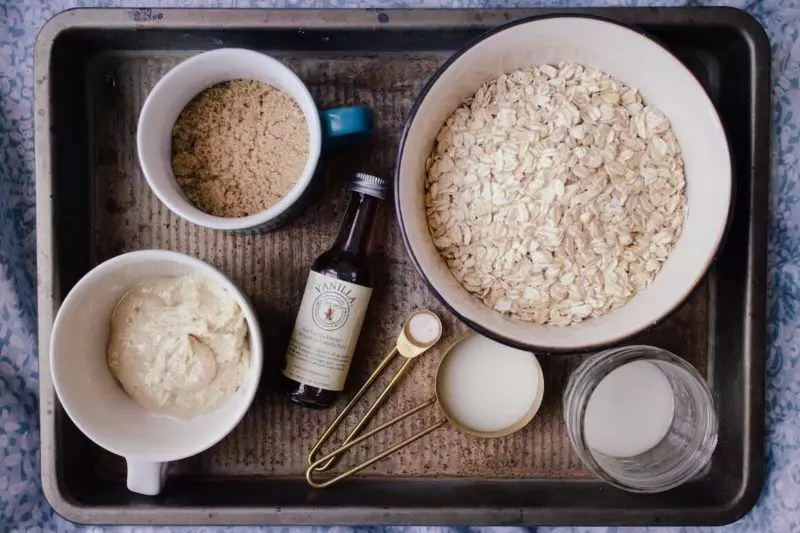
There are so many different ways to incorporate oats into the diet. It is easy to sneak oats into your meals because they are relatively tasteless. Get creative and research different recipes for overnight oats, savory oatmeal, baked oatmeal, and oat-based desserts!
Reduce the risk of type 2 diabetes development
As mentioned, fiber in oats can support balanced blood sugar levels by preventing sharp spikes in those with Diabetes.
In addition to that, moderate and regular consumption of oats can be associated with an overall reduction in blood sugar (to healthy levels), as well as decreased production of insulin (in response to rises in blood glucose).
Besides, such glycemic and insulin control can be associated with healthy blood pressure levels. This way, oats can play a significant role in preventing and improving symptoms of hypertension and can be a suitable choice for people following DASH diet (Dietary Approaches to Stop Hypertension.) [5]
In that sense, oats can prevent not only development of chronic high blood pressure but also related health conditions like chronic kidney disease.
Antioxidant activity
Oats are rich in plant antioxidants, called polyphenols. Evidence suggests that consumption of these compounds can be associated with regulations in metabolism, weight, chronic diseases (mainly obesity, neurodegenerative disorders, and cancer), inflammation, and cell reproduction and development. [6]

How to eat more oats? (5 Tips)
Even though many people enjoy having a bowl of oatmeal porridge (topped with berries, for example) or overnight oats, some people would rather skip these meals.
And for those who don’t like oats because of the mushy porridge texture, here are 4 (tasty) ways to integrate oats into your diet:
- Add oats (blended oats or oat flour) to your homemade baked goods (and dough): for bread, pastries, sponge cake, pie, muffins, cookies.
- Make “oatcakes”: pancakes with oat flour instead of regular flour (or a mix of both). They taste slightly sweeter and are super delicious!
- Oat based granola. You can either buy it, or make one at home! Mix rolled oats with honey, seeds, nuts and dried fruits of choice. Put the mixture into a tray and press it slightly. Bake until golden, let it cool, and enjoy your oat granola!
- Steel cut oats instead of rice. With steel cut oats you can prepare delicious risotto with the same ingredients you’d use with rice. Just don’t over-boil them, in order to keep their shape and texture.
- High-fiber, plant-based “Oat Bowl” (link to recipe by Claudia Hleap, RD)
- High-protein apple cinnamon overnight oats (link to recipe by Claudia Hleap, RD)

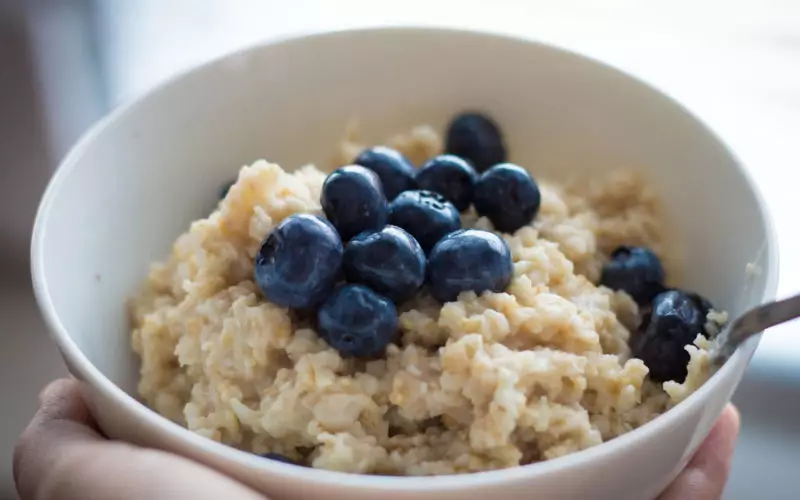

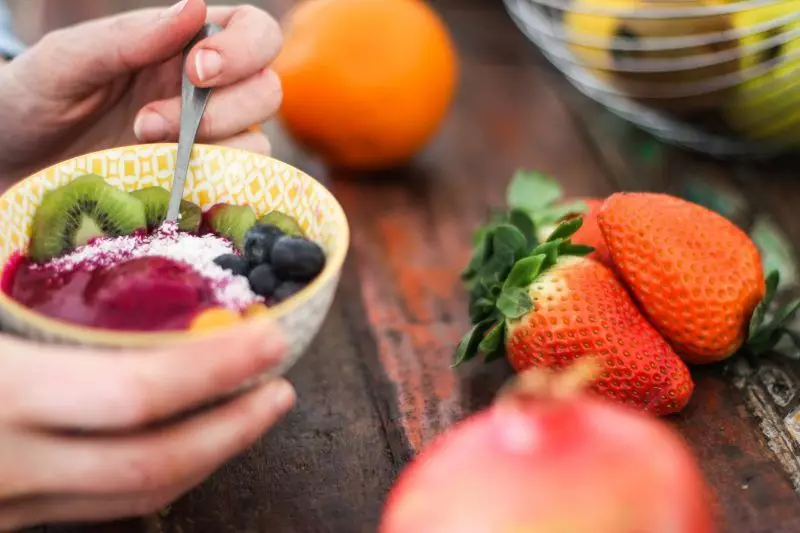

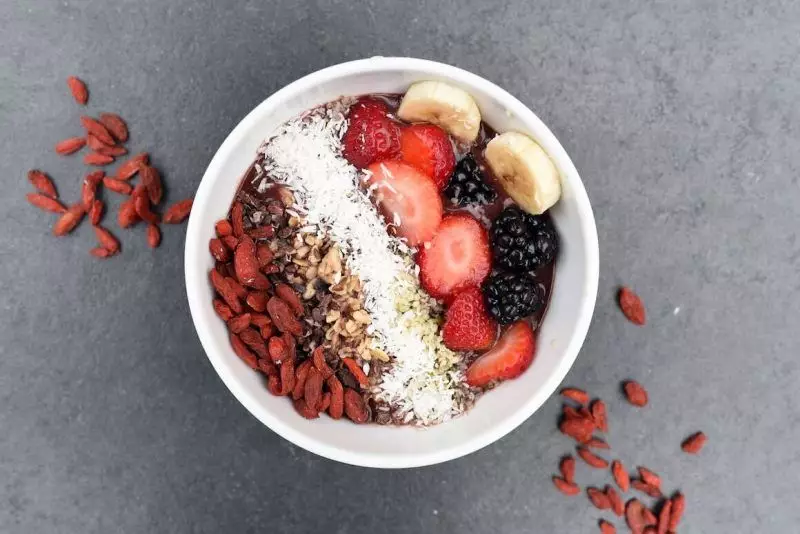
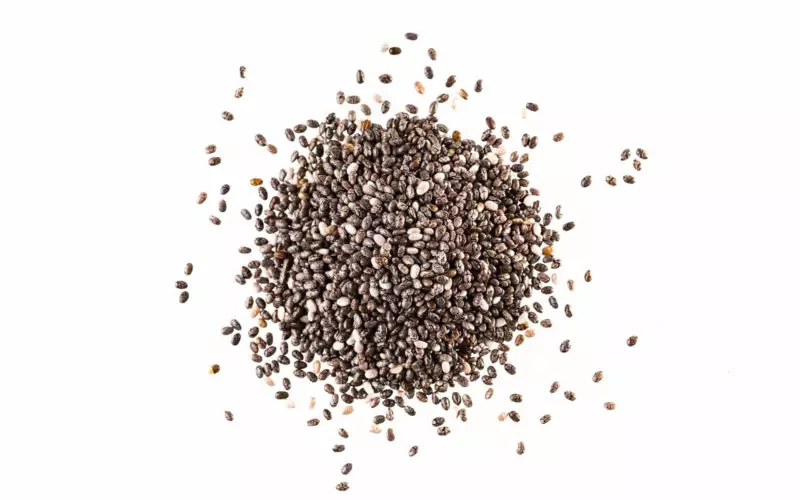


Parabéns pelo conteúdo deste blog, fez um ótimo trabalho!
Gostei muito.
Um grande abraço!!!